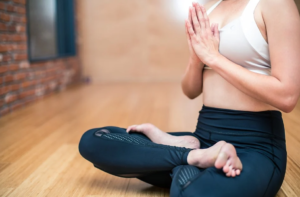
Sleeping is one of the essential roles; it soothes the brain and repairs worn-out body tissues. Sleep deprivation disturbs the body’s immune system, and this leads to fatigue and depression. The importance of sleep cannot be overestimated. For a healthy life, adults are recommended to sleep 7-9 hours a day. Nevertheless, many people have sleeping issues affecting one’s physical and emotional health. As a result, this issue can affect concentration while working or doing daily activities. To overcome the problem, read the following pointers to help you sleep better.

Situate the Room Temperature
Ensure that the heat in this area is sleep-friendly and comfortable, along with fantastic ventilation. Extreme temperature disturbs your sleep and can make you still awake during the night. In contrast, non-conducive room temperature can also wake you up when you finally fall asleep. Moreover, an article on temperature and sleep reveals the impact of temperature on sleep quality. Therefore, set your room temperature if you are using air conditioning or situate the air circulation if you don’t use air conditioning.
Relax Your Mind
The deficiency of sleep can be the effect of intrapersonal conversation within you. The brain is connected to other parts of the human body, such as your mind. If you use your mind at work, thinking about your struggles and events during the day, other parts of your body will probably work. Therefore, free your mind from all ideas when you go straight to bed.
Don’t Push Yourself to Sleep
The old saying asserts that “the harder you try to do something, the more you get the opposite.” If you are attempting to sleep, you are indirectly saying your system not to fall asleep, and that is exactly what it will do!. You can do activities that stimulate your nap, such as reading a book, watching tv, or listening to the radio. Many people believe these activities can work well to start drowsy.
Do Some Practices
Movement is beneficial for your body in many ways. It is helpful to practice for at least 20 minutes a day to avoid bad sleep. The move has a direct effect on your body, both emotionally and physically. It restores your body and allows you to sleep at night without stress. Types of exercise include yoga, jogging, running, and walking.
Limit Caffeine and Alcohol
Routine consumption of caffeine and alcohol increases sleep deprivation. These drinks have a stimulating effect on the body, preventing you from falling asleep and keeping you awake during the day. To get a reasonable length of sleep, you should stay away from these drinks. On the other hand, drink something that can help you sleep, such as warm milk, almond milk, green tea, chamomile tea, pure coconut water, or herbal tea before you go to bed.

